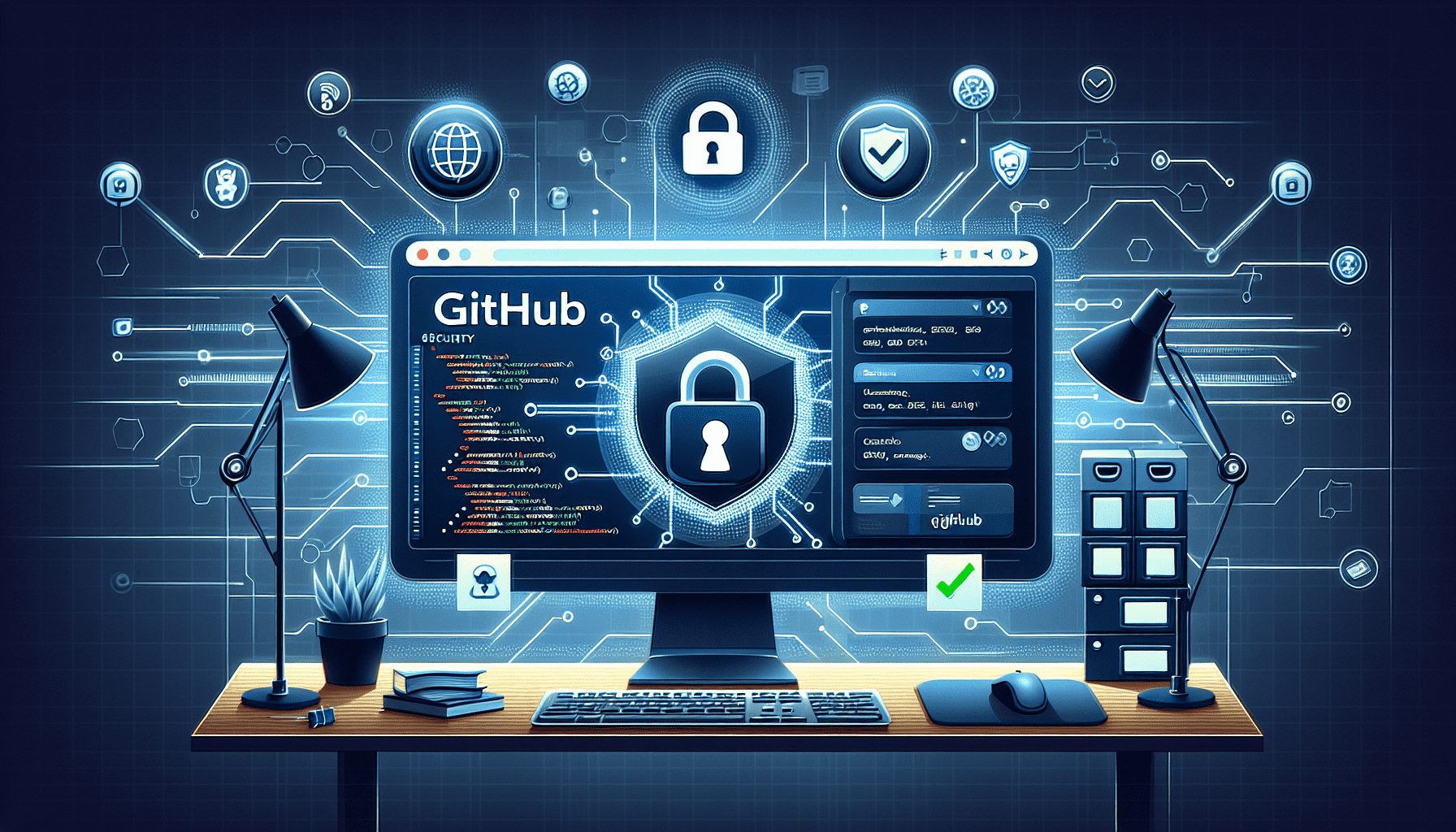
Source: Bazoom AI
In the swiftly changing landscape of cybersecurity, ensuring the security of your GitHub repositories is crucial. As a developer or project manager, you must be proactive in implementing security measures. By doing so, you protect your code and data from potential threats.
The importance of GitHub security
GitHub has become a central hub for developers worldwide, hosting millions of repositories. This makes it a prime target for cyberattacks. One critical aspect of GitHub security is understanding the different types of threats that can compromise your repositories. These threats can range from simple phishing attacks to sophisticated malware designed to exploit vulnerabilities in your code.
To bolster your GitHub security, it’s vital to stay updated with the latest security advisories and patches. Regularly updating your dependencies and using automated tools to scan for vulnerabilities can significantly reduce the risk of an attack. Additionally, enabling two-factor authentication (2FA) provides an extra layer of protection for your account.
Effective security practices also include regularly backing up your repositories. Utilizing services such as https://gitprotect.io/github.html ensures that you have a reliable backup solution in place. This way, you can quickly restore your data in case of an incident.
Why backing up GitHub repositories is essential
Backing up your GitHub repositories is not just about preventing data loss; it’s about maintaining business continuity. In the event of a cyberattack or accidental deletion, having a backup allows you to recover quickly without significant downtime. A reliable backup solution ensures that your projects remain intact and accessible.
There are several tools available for creating backups of your GitHub repositories. These tools can automate the process, making it easier to ensure that all your data is safely stored offsite. Investing in a comprehensive backup solution like https://gitprotect.io/github.html can save you from potential headaches down the line.
Moreover, a robust backup strategy demonstrates a commitment to GitHub security by showing that you are prepared for any eventuality. This proactive approach not only protects your data but also instills confidence among collaborators and stakeholders who rely on the integrity and availability of your projects.
Implementing best practices for GitHub security
To further enhance GitHub security, it’s essential to follow best practices tailored to your specific needs. Start by conducting regular audits of your repositories to identify any potential vulnerabilities or misconfigurations. Implementing strict access controls ensures that only authorized personnel have access to sensitive data.
Additionally, utilizing security tools provided by GitHub can help identify and mitigate risks early on. Features such as Dependabot alerts and secret scanning provide valuable insights into potential issues within your codebase. Integrating these tools into your development workflow creates a more secure environment for your projects.
Finally, fostering a culture of security within your team is crucial for long-term success. Educate team members about the importance of GitHub security and encourage them to stay informed about emerging threats and best practices. By working together, you can create a resilient defense against potential cyberattacks.
The role of continuous monitoring in GitHub security
Continuous monitoring is another critical component of maintaining robust GitHub security. By keeping a close eye on your repositories and their activity, you can quickly detect any unusual behavior or potential threats. Automated monitoring tools can alert you to suspicious activities, allowing you to take immediate action.
This ongoing vigilance is essential because cyber threats are constantly developing. Regularly reviewing logs and audit trails helps identify patterns that may indicate an attempted breach or unauthorized access. By staying proactive and vigilant, you significantly reduce the risk of successful attacks on your repositories.
Prioritizing GitHub security through continuous monitoring, regular backups, and adherence to best practices is key to protecting your valuable code and data from cyber threats. Stay informed and implement these measures to ensure the safety and integrity of your projects on GitHub.